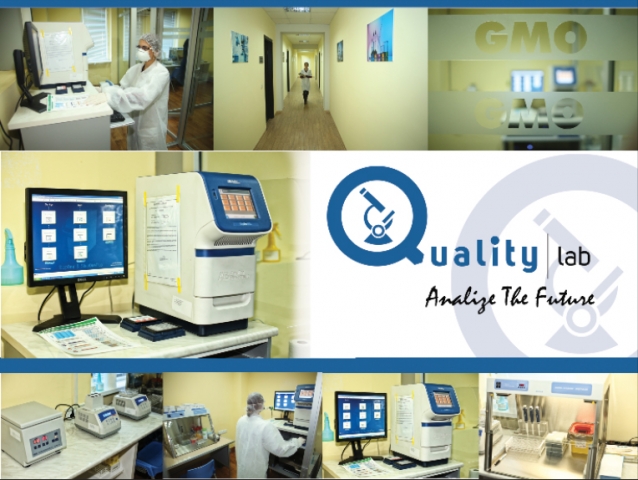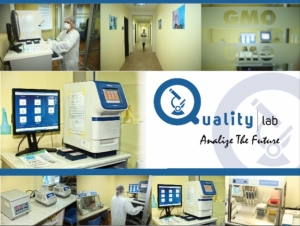It is Time to Know What You Eat
One of the leading food quality testing laboratories in Georgia, Quality Labs is the only laboratory in the country to reveal the presence of genetically modified organisms (GMO) in products. After only two years of operation, it has already proved that it is the guarantor of quality, a fact recognized not only in Georgia, but also abroad. Recently, the Quality Lab received the highest-grade from Accredited Laboratory Proficiency Testing FAPAS.
“FAPAS sent an unknown substance to the laboratory, and our task was to identify what it was and whether it contained GMO or not,” said Director of the Quality Lab, Irakli Chkadua about the proficiently testing process. “From the 30 laboratories all over Europe, we entered the top three to not only detect the presence of GMO, but also to determine what gene it was. Thus, receiving the highest score.”
According to Chkadua, the laboratory’s success lies in the latest equipment and qualified staff. Almost every 3 months one of the laboratory’s employees goes on training or refresher courses abroad in order to stay abreast of new technologies and improve their skills.
The Quality Lab holds a certificate of European Accreditation ISO / IEC 17025. All equipment meets international standards. One of them is the unique PCR by Applied Biosystems– the only device for the detection of GMOs in various food products by quantitative and qualitative disrupt existing in Georgia.
“Despite the fact that scientists have not exactly proven whether or not GMOs are harmful to humans, I still tend to assume that all unnatural products will have an impact on the human organism sooner or later. Therefore, everyone needs to know what he/she is eating, whether it is natural or genetically modified and then make their own choices,” noted Chkadua.
A GMO is an organism whose genotype is artificially modified by genetic engineering techniques. Most often, this involves fusion of the plant genome with the genome of an animal to increase the shelf life of the product, or for other purposes. “For example, if we inject a polar bear gene into a tomato, we might get a vegetable resistant to the cold,” explained Chkadua.
Despite the fact that GMO product turnover is increasing every year, it is worth noting that the movement against them is also growing. Some genetically modified products are prone to mutation and some scientists tend to assume that the use of such products may lead to cancer. In some states of the US, in some European countries and even in Georgia’s neighbor country Azerbaijan, the law prohibits GMO products.
According to Georgian legislation, the importation of GMO seeds is also prohibited, but not the importation of GMO products. Therefore, the Quality Lab tests not only local products, but also imported ones.
Chkadua said that, unfortunately, the business sector is not very interested in checking the quality of products for a variety of reasons. That said, in the two years they have been operating on the Georgian market, the demand for their services has begun to increase, since many brands are concerned about their quality and know that having non-genetically modified products is in itself a definite sign of quality.
“Frequently, companies do not even know whether their products contain GMOs or not. Therefore, they bring them to us for testing. In addition, we offer not just a single service but a continuous one, as it is important to monitor all the time and check the products at regular intervals, at least because providers are constantly changing and nobody knows what we can find there,” said Chkadua.
The Quality Lab’s doors are open to everyone, not only for food companies, but also for individuals who have a suspicion about a product. According to Chkadua, prices are available and suitable for absolutely everyone. Tests in the laboratory are made within a maximum of two days and reveal the presence of not only GMOs but also other harmful substances.
Irakli Chkadua states that GMO testing became more urgent after Georgia signed the Association Agreement with Europe. The quality of the products distributed within the country is also an important element of rapprochement with Europe.
The Quality Lab signed a memorandum of cooperation with the Georgian Chamber of Commerce and Industry and won a tender in partnership with the National Food Agency and Customs Department to test products and conduct joint projects. In addition, the laboratory has a transparent policy and all information about quality and non-GMO products can be seen on the Quality Lab’s website (http://www.qlab.ge/).
Eka Karsaulidze











